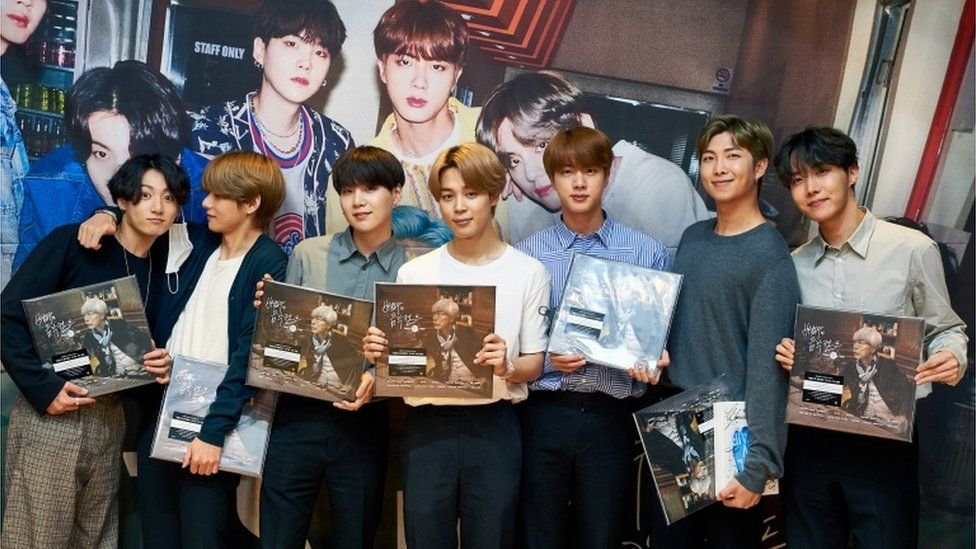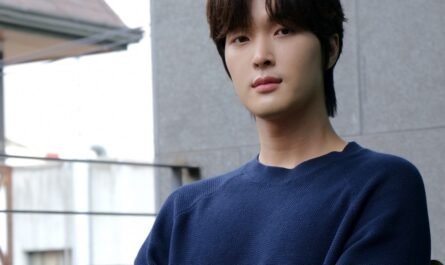On the 10th, ahead of the declaration of a state of emergency to prevent the novel coronavirus infection (COVID-19), there was an exceptionally crowded place on the streets of Shibuya, Tokyo, where the crowds decreased. This is a K-pop store on the 5th floor of Tower Records, a large record store in the center of Shibuya. From the entrance to the first-floor general store and K-POP corner, BTS’ photos and albums were piled up everywhere.
A third-year middle school girl who came with her friends said, “I’ve already bought different types of BTS albums, and today there was an event where I gave out ‘ENHYPEN’ photos. When I asked, “The relationship between Korea and Japan isn’t good, isn’t it uncomfortable (like a Korean singer)?” he asked, seemingly surprised. “I don’t know. Is the Korea-Japan relationship bad?”
The best album ‘BTS, THE BEST’, released only in Japan on the 16th of last month, received the ‘million certifications’ from the Japan Record Association on the 9th. It is a sign that the cumulative shipment has exceeded 1 million units. BTS is the only singer in Japan who received a million certifications this year. This album also took first place in Japan’s Oricon’s ‘Weekly Album Ranking’ for three weeks in a row, demonstrating the power of BTS’ fandom in Japan.
Two worlds coexisting, why?
Japan’s ‘third Hallyu,’ represented by BTS, will not cool down even in the face of ‘hate Korea’, which seems to have become the mainstream sentiment in Japan, and Corona 19, which completely cut off the private exchange. Living culture such as K-pop, dramas, and Korean cosmetics, food, and interiors are spreading deeply among young people.
In a recent survey by a marketing company, BTS was chosen as the favorite artist of Japanese high school students, with 11% support. Among Japanese Generation Z (born in the mid-1990s to early 2000s), it is said that ‘dokan Gekko (Korean travel game),’ where you watch Korean singers’ concert videos while eating Korean food with your friends, is popular.
This third wave of Hallyu is not easily found in mainstream Japanese media. It is as if one colossal world, invisible to the eyes of the older generation, coexists in another dimension. It is analyzed that this is because the 3rd Hallyu has an essentially different structure from the 1st and 2nd waves of the past. If the 1st wave represented by ‘Winter Sonata’ and the 2nd Hallyu evoked by ‘Girls’ Generation’ and ‘Kara’ became known and spread through ‘old media’ such as TV broadcasts, the stage of the 3rd Hallyu is thoroughly social media (SNS). And Internet-based platforms such as YouTube.
BTS is a representative artist who has succeeded based on this new platform. Professor Kim Kyung-Joo of the Department of Liberal Arts at Tokai University in Japan said, “The younger generation in Japan accepts, shares, and enjoys K-pop and Korean culture through the Internet. Since I rarely get information on TV or newspapers, I am virtually unaffected by news on bilateral relations.”
BTS is a world star, not a Korean wave
As relations between the two countries cooled following the visit of former President Lee Myung-bak to Dokdo in 2012, it became difficult to find Korean content on Japanese TV. Even today, this trend continues. Among middle-aged women who were the main fan base of the 1st Hallyu wave, many confessed ‘change of mind.’
In the case of BTS, in 2018, the so-called ‘anti-Japanese T-shirt controversy’ took a hit, such as canceling their appearance on Japanese TV shows. However, even after that, the BTS fandom in Japan seems to be rapidly expanding. In particular, as BTS swept the Billboard charts and performed on the Grammy stage, gaining popularity in the Western world, including the United States, voices criticizing BTS by linking it with political issues have almost disappeared in Japan.
Kwon Yong-Seok, a professor at Hitotsubashi University, said, “The existence of BTS is already recognized as a ‘world star’ that has gone beyond the realm of the Korean Wave. The reason there was.”
“Possibility of new bilateral relations”
Will the BTS phenomenon brings about changes in Korea-Japan relations? Experts predicted that “a different type of relationship may unfold.”
Currently, Generation Z of Japan is the first generation to recognize Korea as a country on the same level as Japan and as a country to admire. Professor Kim Kyung-Joo said, “It is unclear how those who have begun to understand Korea through ‘culture’ will accept political and historical issues,” he said.











